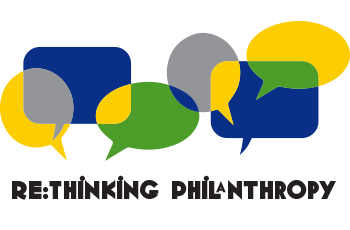This blog post was originally published on August 27th, 2018 by Harter Secrest & Emory LLP Attorneys and Counselors, a NY Funders Alliance member. It is reposted here with permission from the author.
Author: Edward J. Steve, Esq.
As discussed in our May 18, 2018 LEGALcurrents®, on April 12, 2018 Governor Andrew Cuomo signed the New York State Budget, which included new requirements to address workplace sexual harassment. Under the new rules, by October 9, 2018 all New York employers (regardless of size) are required to either adopt the State’s model anti-harassment policy and training or adopt a policy and implement a training program that meets New York standards.
In this regard, on August 23, 2018 New York State issued draft guidance, including: model sexual harassment policy and training documents; standards for anti-harassment policies and training; a model complaint form; and FAQs. The draft documents are contained on the State’s Combating Sexual Harassment in the Workplace website and are open for public comment until September 12, 2018. The New York State Department of Labor and Division of Human Rights will review the comments and presumably issue the final documents by the October 9, 2018 effective date.
Highlights of the draft materials include:
Policy Provisions
- The policy must be provided to employees at hire and may be available electronically, provided that employees must have computer access during work hours and the ability to print a copy.
- Provides for adoption of a “zero-tolerance” policy. Notably, the U.S. Equal Employment Opportunity Commission discourages the use of zero-tolerance policies because such policies may inappropriately convey that every instance of harassment results in termination. That could result in under-reporting of complaints.
- Recommends that harassment investigations be completed within thirty days.
- Provides for “due process” for complainants, witnesses, and alleged perpetrators. It is unclear what “due process” rights would be required as the term is not defined and private sector employees do not have constitutional due process rights.
- Managers and supervisors are required to report any (i) complaints they receive, or (ii) harassment they observe.
- Harassment of non-employees is prohibited. Non-employees include contractors, subcontractors, vendors, consultants, or others providing services to the employer.
- Requires employers to provide information on federal, state, local, and court avenues to report and adjudicate claims.
Training Requirements
- Training for all employees must be completed by January 1, 2019.
- Training must be provided to all employees, even if an employee works just one day for the employer or one day in New York.
- Employees must be trained annually. In subsequent years, this may be based on the calendar year, anniversary of each employee’s start date, or any other date the employer chooses.
- Training for new hires should be completed within thirty days of hire.
- Training must be “interactive” and include as many of the following elements as possible:
- Be web-based, with questions asked of employees as part of the program;
- Accommodate questions asked by employees;
- Include a live trainer made available during the session to answer questions; and
- Require feedback from employees about the training and the materials presented.
- The model training provides several scenarios with True/False questions and explanations.
Harter Secrest & Emery Labor and Employment attorneys conducted an informal discussion and Q&A session on the proposed guidance on Wednesday, August 29 at 9:30 am and Thursday, September 6 at 2:30 pm. A recording of the teleconference is available here.
These are draft materials and we anticipate changes to the final documents. Please stay tuned for updates as we will continue to monitor further developments.
Editors Note: If you are a member of the NY Funders Alliance and have questions or need more information on this topic, please email our office.


Post a comment